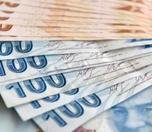Click to read the article in Turkish
Following the second round of the presidential election on May 28, the Turkish lira continues to experience depreciation, causing concerns in the economy.
Following his re-election, Recep Tayyip Erdoğan's decision to appoint Mehmet Şimşek as the minister of treasury and finance was anticipated as a sign of Turkey's return to orthodox economic policies. However, the appointment did not yield the desired effect, as the lira's depreciation persisted.
Experts suggest that the government may have intervened in the foreign exchange market before the elections to suppress the surge in exchange rates. However, following the conclusion of the election, these measures ceased, resulting in a significant devaluation of the lira.
The impact of these developments is evident in the exchange rates. The USD/TRY rate reached a new record of 23.15 in the morning, marking a considerable increase from its previous level of 21.61. The US dollar gained over 7% against the Turkish lira, while the lira itself experienced a depreciation of 6.65%.
The EUR/TRY rate also hit an all-time high of 24.55, surpassing previous records. This marks a significant milestone for the euro, as it breaches the 24 Turkish lira threshold for the first time in history.
In addition to the foreign exchange market, the depreciation of the lira has had an impact on other assets. Despite relatively stable gold prices globally, the value of gold per gram in Turkey has surged to an all-time high of 1,445 Turkish liras. This increase can be attributed to the depreciation of the lira, as investors seek alternative safe-haven assets. (HA/VK)






.jpg)
